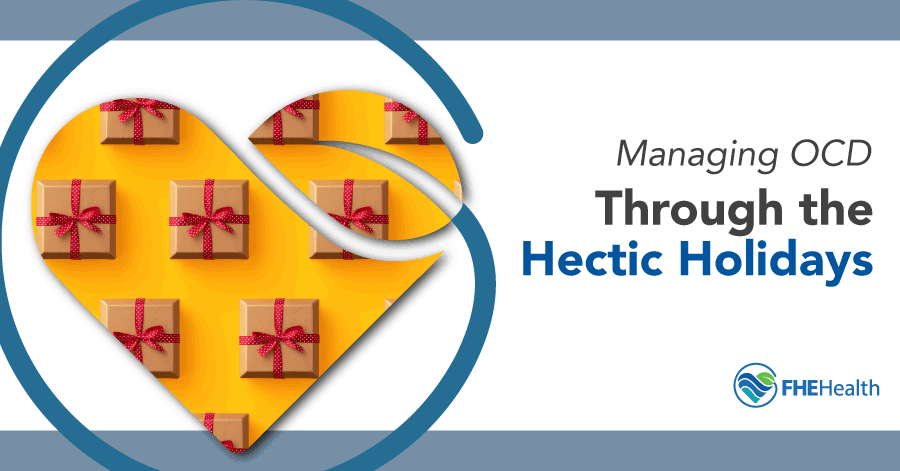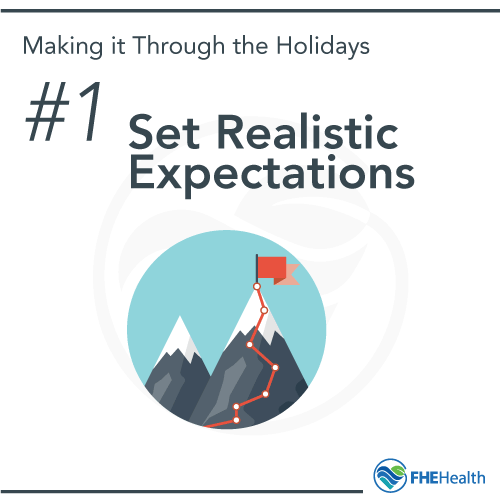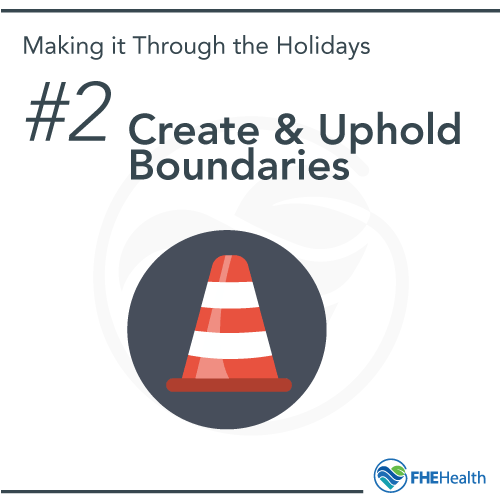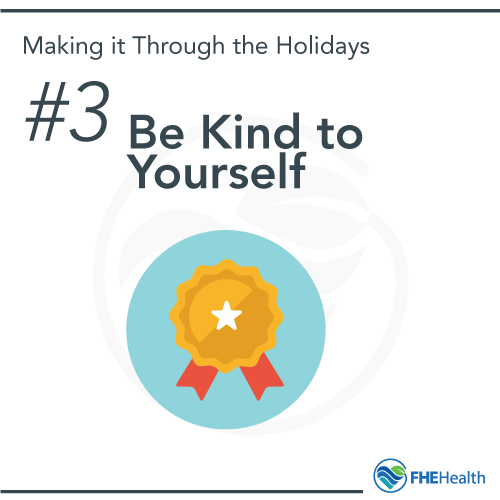
For many people, the holiday season is one of fun, family and friends — but this isn’t the case for everyone. If you’ve been diagnosed with obsessive-compulsive disorder or suspect you might be dealing with it, the holidays can have you feeling overwhelmed and out of control. Habits like OCD muscle clenching, counting in your head and other compulsions tend to clash with these hectic times. Ultimately, you may end up disappointed if what’s supposed to be a joyful season doesn’t live up to your expectations.
Whether your family traditions involve holiday cookie swaps, Christmas Eve church services or having to travel to (or host) family, this season is full of stresses and triggers that can make it difficult for those with OCD to manage. Even if you don’t personally celebrate, the expectations from work colleagues or friends can add to the pressure.
This is true for those who aren’t dealing with a mental health issue, but even more so for those struggling to manage their OCD. Here’s a look at how OCD can impact the holidays and some tips for how to manage your mental health during this trying time.
Understanding Obsessive-Compulsive Disorder
It’s not uncommon to hear someone call themselves or someone else “OCD” because they like things to be neat or wash their hands frequently. But the truth is that obsessive-compulsive disorder is much more complicated than what its portrayal in pop culture, such as on shows like “Monk” and “The Big Bang Theory,” would have everyone believe.
OCD isn’t just being a “neat freak” or liking things a certain way. It’s important for those who suffer from it or suspect they may have it to understand that it’s not something that can be cured — or really even managed — by trying to “relax” or “get over” things. OCD is a real behavioral disorder that can have a serious impact on your life, but it can be improved with the proper treatment plan.
Holidays and Stress
Even for those not diagnosed with OCD, the holidays can be triggering and stressful. So many events are outside our control, and the pressure for everything to go perfectly is increased tenfold. The list could go on and on, but some of the most common holiday stressors include:
- Travel anxiety. Whether you’re heading out to visit family and friends or they’re making their way to you, travel is usually a part of holiday plans. This can cause thoughts of horrible accidents, worries about expensive repairs or even the dread of spending time confined in a small space.
- Disruptions to routine. For many individuals with OCD, strict routines are comforting and one way to alleviate their symptoms. A constantly shifting holiday schedule can disrupt this sense of control and cause immense amounts of stress.
- Socialization. While those with OCD often enjoy spending time with others, the abundance of parties and other events during the holidays can become a source of exhaustion rather than joy.
- Expectations of perfection. Holidays are often imagined like a Hallmark movie, filled with perfect moments and families gathered together in a perfectly decorated home. When we have a certain image of the holidays, we may fear that something will go wrong or things won’t live up to people’s expectations. This can also be a trigger for those with OCD.
OCD Muscle Clenching, Reassurance Seeking and Other Behaviors to Watch For
If you think you or someone you know may be dealing with undiagnosed OCD, it’s a good idea to keep an eye out for an OCD flare-up around stressful times. Here are some examples of behaviors to be on the lookout for:
- Excessive handwashing. One of the most recognized rituals associated with OCD, increased handwashing may be one of the first signs of an OCD episode. The holidays do align with flu season, so a bit of extra handwashing can be a good idea. But if you’re washing your hands until they’re raw, cracked or bleeding, or you notice a loved one is spending an excessive amount of time in the bathroom showering or handwashing, it could be a symptom of OCD-related stress.
- Body soreness. OCD muscle clenching urges can ramp up during times of great stress. The physical sensation is often a way to self-soothe. However, when used too frequently, this can result in increased headaches, muscle stiffness or general aches and pains.
- An increase in reassurance-seeking behaviors. Those with OCD often ask a lot of what-if questions and need reassurance that everything is going to be okay. If you struggle with anxiety as part of your symptoms, you may notice this increase with the stress and pressures of the holidays.
- Escalating compulsions. Compulsive behaviors and thoughts are incredibly common in those with OCD. If you find yourself wondering, “Why can’t I stop counting in my head?” or you’re rearranging the holiday decorations over and over again, it may be a sign of excessive holiday stress.
- Becoming more reclusive. Withdrawing can be a coping mechanism for those who have OCD. By staying in their own environment, they can ensure control and reduce their overall stress.
Being Proactive
While it’s important to recognize the serious impact the holidays can have on OCD, it’s also crucial to remember that this condition doesn’t have to mean missing out or living in a constant state of anxiety. By understanding how your OCD manifests and learning to recognize and deal with your triggers proactively, you can increase your chances of staying on a successful path. Here are three tips to manage OCD during the holidays.
1. Set Realistic Expectations
When the holidays come around, it can feel like everyone wants or needs something. The pressures you would normally be able to say no to become more difficult to deal with, since everything is hedged in “Oh, come on, it’s the holidays!”
It’s important to be honest with yourself about what you need for your own mental health and to set realistic OCD Christmas expectations for what you’ll be able to do. If this means attending only two holiday parties out of six or skipping your turn to host the ugly sweater party, that’s fine.
2. Create and Uphold Boundaries
Boundaries are incredibly important when it comes to personal relationships, and the holidays can be a great time to practice setting them and then sticking to them. If you know that visiting a certain relative’s home triggers OCD behaviors, explain that you’re not going to be able to come over but you could meet for coffee or have them come to your house. Remember that you don’t have to justify your boundaries or explain your reasoning.
It’s very common for people to push back on boundaries, especially during the holidays when it can seem like real life is suspended. Sticking to what you’ve laid out with a firm “No, that doesn’t work for me” or “No, I won’t do that” works well.
3. Be Kind to Yourself
Understand that no one is perfect — you may end up not being able to attend every party you said yes to. It’s easy to overcommit on what you think you can handle before the holidays, and it’s important to be able to adjust your expectations of yourself as the weeks progress.
If you do find that OCD is having an impact on your holiday season, remember that you have OCD, but you are not OCD. The disorder may affect how you are able to handle certain situations, but it’s not your identity. As long as you’re able to do what you can to protect your mental health and deal with the stresses of the holiday season, that’s more than enough.
Get Help for Getting Through the Holidays
If you’ve already been diagnosed with OCD, talking to your mental health care team about how you can manage the disorder going into the holidays can be a great first step. You already have some tools and strategies at your disposal, and they can help you adjust those for the festive season.
However, if you think you might have OCD but haven’t been formally diagnosed, it’s worth talking to someone to find out how treatment can help. Contact FHE Health to learn more about our treatment programs for obsessive-compulsive disorder.









